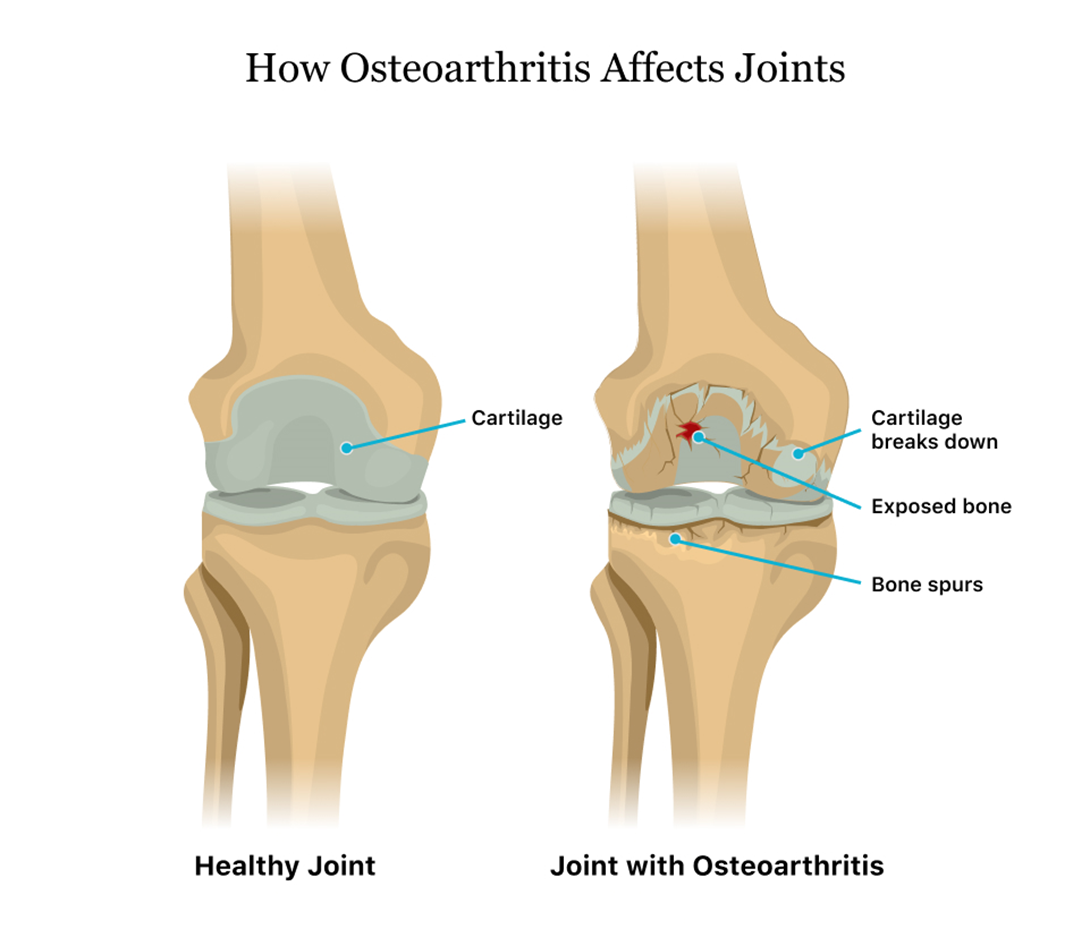An older adult client with symptoms of osteoarthritis asks the nurse which form of exercise would be most beneficial. Which is the best response by the nurse?
Jogging or running are excellent aerobic exercises.
Tennis or racquetball will increase your muscle strength.
Limit your exercise to just your daily activities.
Swimming is an excellent exercise for you.
The Correct Answer is D
Choice A reason: Jogging or running are not excellent aerobic exercises for an older adult client with osteoarthritis. These activities can put a lot of stress and impact on the joints, especially the knees, hips, and ankles, which can worsen the pain and inflammation of osteoarthritis. The nurse should advise the client to avoid high-impact exercises that can damage the cartilage and bones.
Choice B reason: Tennis or racquetball are not ideal exercises for an older adult client with osteoarthritis. These activities involve sudden movements, twists, and turns that can strain the joints, especially the elbows, wrists, and shoulders, which can aggravate the symptoms of osteoarthritis. The nurse should advise the client to avoid exercises that can cause joint instability and injury.
Choice C reason: Limiting the exercise to just the daily activities is not a good advice for an older adult client with osteoarthritis. Exercise is important for maintaining joint health, mobility, and function, as well as preventing muscle loss, obesity, and cardiovascular diseases. The nurse should encourage the client to engage in regular moderate exercise that can improve the quality of life and reduce the complications of osteoarthritis.
Choice D reason: Swimming is an excellent exercise for an older adult client with osteoarthritis. Swimming is a low-impact aerobic exercise that can strengthen the muscles, improve the cardiovascular fitness, and enhance the flexibility of the joints without putting too much pressure or stress on them. Swimming can also reduce the pain and stiffness of osteoarthritis by providing a soothing and relaxing effect on the body. The nurse should recommend swimming as a safe and effective exercise for the client.
Nursing Test Bank
Naxlex Comprehensive Predictor Exams
Related Questions
Correct Answer is C
Explanation
Choice A reason: A referral for social services at home is not necessary for a client with Addison's disease who has stable vital signs, adequate hydration, and good self-care knowledge.
Choice B reason: Limiting daily fluid intake to 500 mL is not appropriate for a client with Addison's disease, who is at risk of dehydration and hypotension. The client should drink fluids according to thirst and urine output.
Choice C reason: Preparing the client for discharge home is the best action for the nurse to implement, as the client has no signs of complications or deterioration from Addison's disease. The client should be able to manage the condition at home with regular follow-up and medication adherence.
Choice D reason: Strict intake and output monitoring is not required for a client with Addison's disease who has normal blood pressure, moist mucous membranes, and strong peripheral pulses. These indicate adequate fluid balance and renal function.
Correct Answer is A
Explanation
Choice A reason: Weight gain of 2 pounds (0.91 kg) in one day is a sign of fluid retention, which occurs in SIADH due to excessive secretion of antidiuretic hormone (ADH). ADH causes the kidneys to reabsorb water and reduce urine output, leading to hyponatremia and hypervolemia.
Choice B reason: Fremitus over the chest wall is a sign of increased vibration or air movement in the lungs, which can indicate pneumonia, bronchitis, or pleural effusion. These are not related to SIADH, but may be complications of head injury or fluid overload.
Choice C reason: Serum sodium of 150 mEq/L (150 mmol/L) is a sign of hypernatremia, which is a high level of sodium in the blood. This is the opposite of what happens in SIADH, where sodium levels are low due to dilution by excess water.
Choice D reason: Urine specific gravity of 1.004 is a sign of diluted urine, which indicates low concentration of solutes in the urine. This is also the opposite of what happens in SIADH, where urine is concentrated and has a high specific gravity.
Whether you are a student looking to ace your exams or a practicing nurse seeking to enhance your expertise , our nursing education contents will empower you with the confidence and competence to make a difference in the lives of patients and become a respected leader in the healthcare field.
Visit Naxlex, invest in your future and unlock endless possibilities with our unparalleled nursing education contents today
Report Wrong Answer on the Current Question
Do you disagree with the answer? If yes, what is your expected answer? Explain.
Kindly be descriptive with the issue you are facing.
